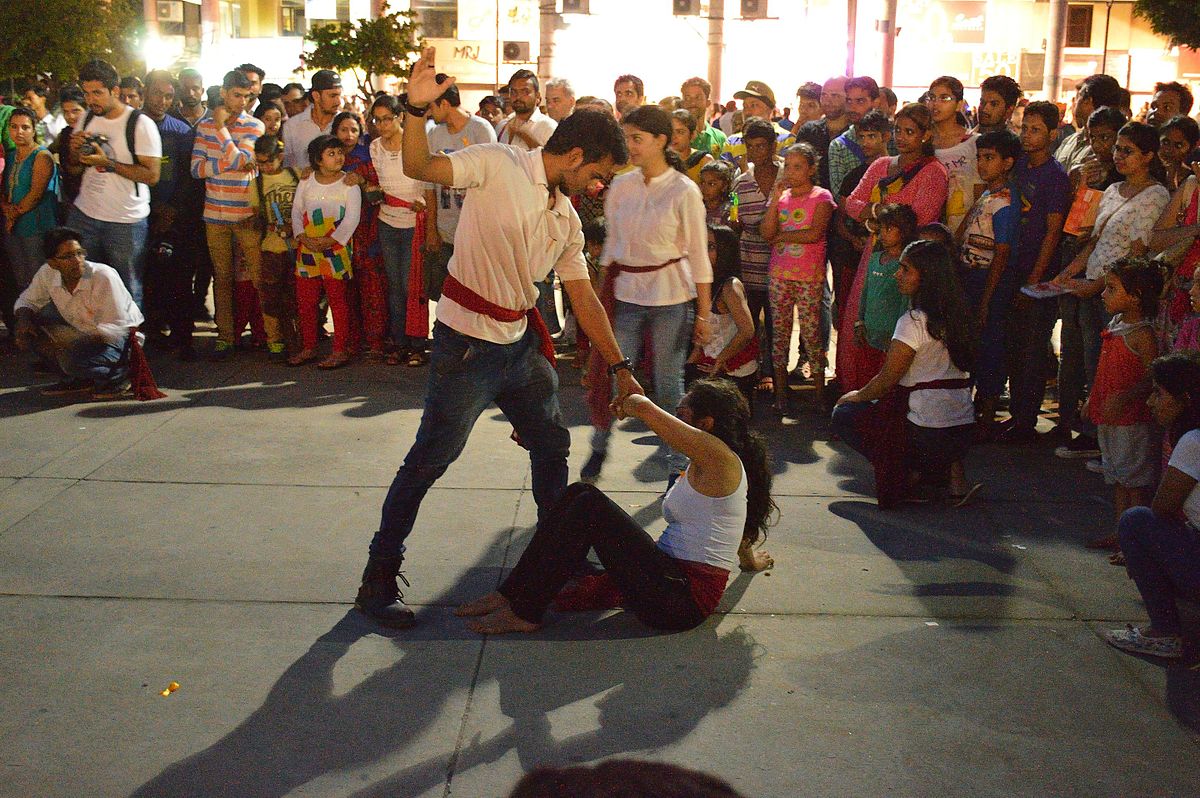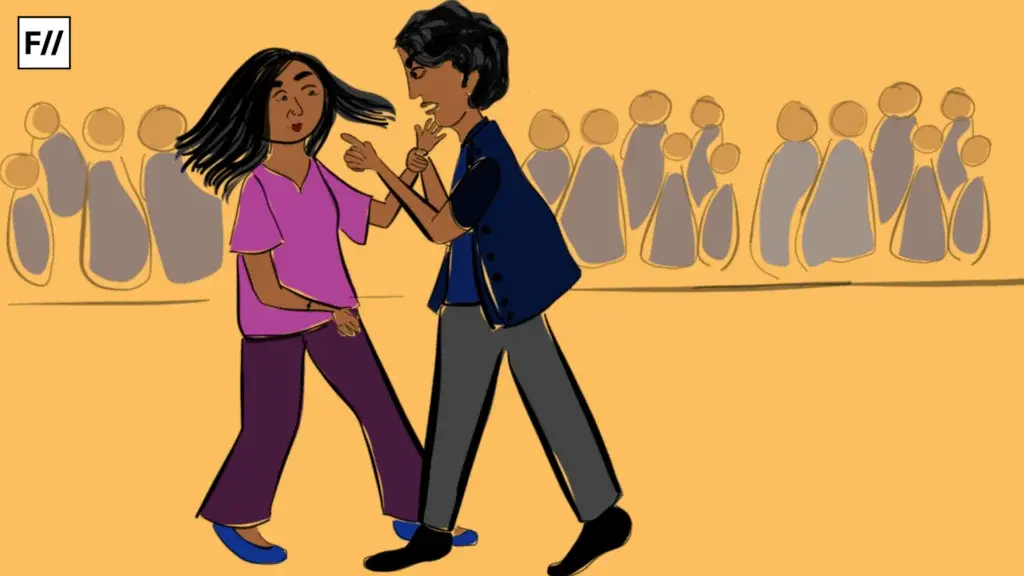It would be trite to say that violence is omnipresent in India, when every third woman is a victim of domestic violence and every fourth woman has suffered injuries as a result thereof (NHFS-4). Perpetuating this violence is the fact that only half the victims of violence ever seek out any help and an even smaller proportion of three percent reach out to the police for support (NHFS-4). The stigma involved in washing “dirty laundry” in public, the lack of support from the authorities and the fear of losing out the only source of income for themselves and their kids has a cumulative effect on to the reluctance of women to report violence at home.
It does not help that the police are reluctant to register allegations of violence and are known to encourage victims to reconcile with their husbands. Police officers are also known to not handover the copy of the First Information Report (FIR), that records details of the crime committed. Making matters worse is the action of the local policemen to turn a blind eye to the diktat of the local council such as the Khap Panchayat and this pressurizes families to not pursue criminal cases against domestic violence.
Behind the behaviour of police lies a bias in redressing cases of domestic violence. This bias is a by-product of being raised in a largely patriarchal social milieu. The upbringing of a girl child is restricted to the private sphere which is usually restricted to the home, whereas boys are conditioned to move out to the public sphere, and are rarely denied education. Later, it is usually the men in the family who become providers as opposed to women who are deemed to be caregivers.
Making matters worse is the action of the local policemen to turn a blind eye to the diktat of the local council such as the Khap Panchayat and this pressurizes families to not pursue criminal cases against domestic violence.
It is also important here to keep in mind the facts about employment of an ordinary police officer—he/she is subject to a high level of multi-tasking and therefore works under pressure, for an average of 13-16 hours per day. Further, 64% of the police officers work all seven days a week without a weekly day off, with the number touching an alarming 96% at senior levels. Vacancy across the departments and limited recruitment leads to shortage of manpower, which contributes to the reluctance of police officers to redress cases of domestic violence.
I recently helped a cousin, whose husband subjected her to physical and mental abuse repeatedly, to seek police protection from her abusive husband. This is the advice I gave her:
Step One-Gather Evidence: As the first step, I told her to collect any evidence of abuse, such as pictures of wounds or threatening WhatsApp messages. I also made her keep a google drive back-up for all the proof, just in case anyone might lose it.
Step Two-Seek Support: As a second step, I ensured that she had informed her close friends and relatives, she was sure would support her. I also ensured that she was accompanied by a trusted friend every time she visited the police. This went a long way in keeping her calm and strong through a harrowing process.
Step Three-Prioritising Safety: It was utmost importance that my cousin knew of safe places she could access at all times when she felt threatened. So I helped her jot down homes that were available whenever she felt unsafe and where she could reside, until things settled down with her husband.
Step Four-Be Clear: One of the most crucial things to remember is to be clear and to narrate all the events with accuracy while discussing with the police. The police are habituated to ask the same questions repeatedly to check with the story. I also told my cousin to keep a written document, with all the details of the instances of violence. While writing an FIR, I advised her to double check all the facts.
Also read: Despite Death Threats, Domestic Violence Survivor Gyanwati Fights Back
It is important to remember that if you are told that an incidence of violence does not fall under their jurisdiction, you can ask to register a ‘Zero FIR’, which is an FIR without number and can be later transferred to the relevant police station. If you are uncomfortable talking about abuse to a male policeman, then you can request the police to be directed to a women’s cell which has female police officers to assist the victims.
It is important to remember that if you are told that an incidence of violence does not fall under their jurisdiction, you can ask to register a ‘Zero FIR’, which is an FIR without number and can be later transferred to the relevant police station.
Step Five-Next Steps: To help her be confident of the process, I assured my cousin that when she is faced with a police officer who is reluctant to file an FIR, she can undertake the following steps:
- Ensure that the reasons for not filing an FIR are recorded by the police officer.
- Approach the Superintendent of Police or the Commissioner of the Police with a written complaint u/s Sec. 154(3) of the Criminal Procedure Code;
- Approach the Judicial Magistrate/ Metropolitan Magistrate u/s 156(3) read with Section 190 of the Criminal Procedure Code, requesting an FIR to be registered by the police and commencing investigation into the matter. The Judicial Magistrate/ Metropolitan Magistrate is empowered to issue orders directing the police to accept a complaint.
- Approach the Complaints and Counseling Cell of the National/State Commission for Women and submit a written complaint. The respective commission is empowered to take suo-moto action under Section 10 of the NCW Act, 1990.
- Approach Protection Officers appointed under the Prevention of Domestic Violence Act, 2005 and record the Domestic Incident Report.
Additional Resources
Apart from these steps, you can also refer to the resources mentioned-Chayn India. Chayn India has detailed information on emergency and domestic violence. One may access the report here. Medical Sans Frontiers India operates the Umeed ki Kiran in Jahangirpuri, which is a free clinic for victims of domestic abuse and assault. To know more, click here.
Also read: How We Further Enable Domestic Violence By Brandishing Privilege
To access information on Protection Officers in your district-click here.
Neha is a lawyer based out of the NCR region. Along with being passionate about teaching, Neha also loves to write and FII provides her with a platform to merge these two interests, giving her space to write about the nitty gritties about the law and procedure. She set up the Ladee Foundation, where she teaches barely educated women about their rights and about approaching law enforcement officers. At the Ladee Foundation, she is also working on a research project to examine the response of the stakeholders to instances of sexual assault reported by women. You can find her on Facebook.
Featured Image Source: Wikimedia




